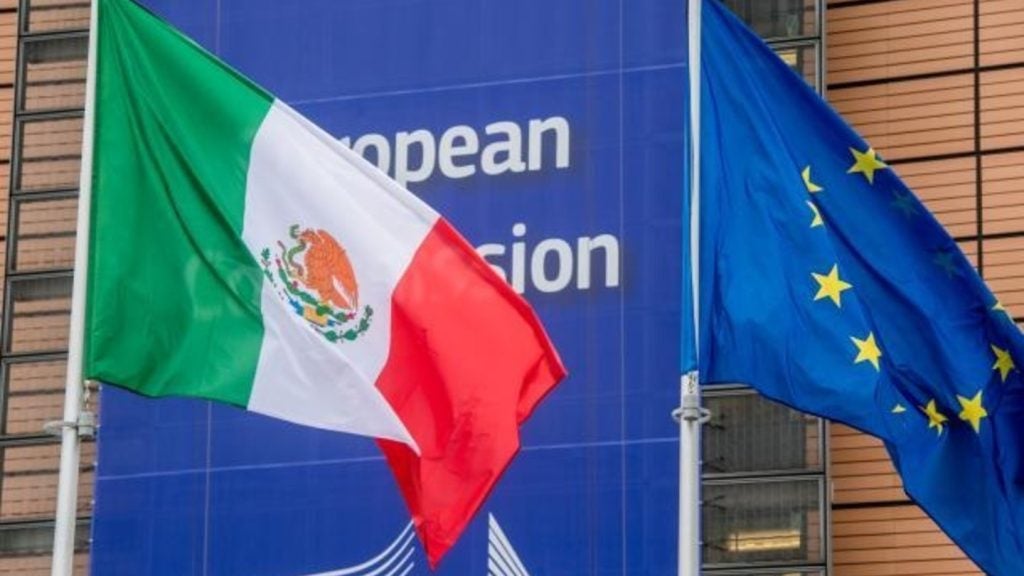The EU and Mexico have concluded “political” negotiations on a modernised trade agreement designed to reduce tariffs on products including meat, cheese and wine.
The deal was reached after talks between EU Trade Commissioner Maroš Šefčovič and Mexican Economy Secretary Marcelo Ebrard.
In a statement, the European Commission said the agreement promotes strategic collaboration on “key geopolitical issues” such as the “de-risking of supply chains, securing sustainable supply of critical raw materials and tackling climate change”.
Brussels said the EU is Mexico's third-largest trading partner. Conversely, Mexico ranks as the EU's second-largest trading partner in Latin America.
Under the deal, Mexico will eliminate tariffs of up to 100% on EU products, such as cheese, poultry, chocolate and wine.
The EU will raise low-tariff quotas for Mexican exports such as beef and poultry.
Mexican producers will be prohibited from using Geographical Indications (GIs) protected names of more than 568 traditional European products.
European Commission president Ursula von der Leyen said: “The EU and Mexico are already trusted partners. Now, we want to deepen our cooperation even further, strongly benefiting our people and economies. EU exporters will gain new commercial opportunities, including our farmers and agri-food companies.
“This landmark deal proves that open, rules-based trade can deliver for our prosperity and economic security, as well as climate action and sustainable development.”
This agreement also comes on the heels of a trade deal struck in December between the EU and Mercosur, a South American economic and political bloc comprising Argentina, Brazil, Paraguay, and Uruguay.
The EU and Mexico initiated negotiations for the agreement in 2016. The updated deal builds on the EU-Mexico trade agreement of 2000.
The EU-Mexico trade relationship is “already-thriving”, with trade in goods reaching €82bn in 2023 and services trade at €22bn in 2022, Brussels said.
The agreement is subject to final legal revision before proceeding with conclusion and ratification procedures, the Commission said.
The deal also includes a trade and sustainable development chapter, setting legally binding commitments on labour rights, environmental protection and climate change. It will be subject to a specific dispute settlement procedure, ensuring effective implementation, the Commission added.
Thijs Geijer, senior food and agri economist at Dutch bank ING, described the trade deal as a “clear signal from the EU that it remains open for trade”.
“At the same time it’s a way for Mexico to reduce some of the risks that Trump’s potential tariffs pose for exporters,” he added.
Before Christmas, US President-elect Donald Trump indicated he plans to implement 25% tariffs on all imports from Canada and Mexico when he assumes office. Trump's inauguration is set to take place later today (20 January).
“On food and agri, the EU continues to expand market access for a range of products including beverages and dairy products by accomplishing lower tariffs and/or additional recognitions of geographical indications for wines, beers and spirits," Geijer said.
"There is clearly a focus on high-value added products. In some of those markets, EU exporters also compete with US counterparts, while it’s very uncertain at this point how Trump’s administration will influence food-agri trade a deterioration in US-Mexico trade relations could give EU exporters another impulse.”









